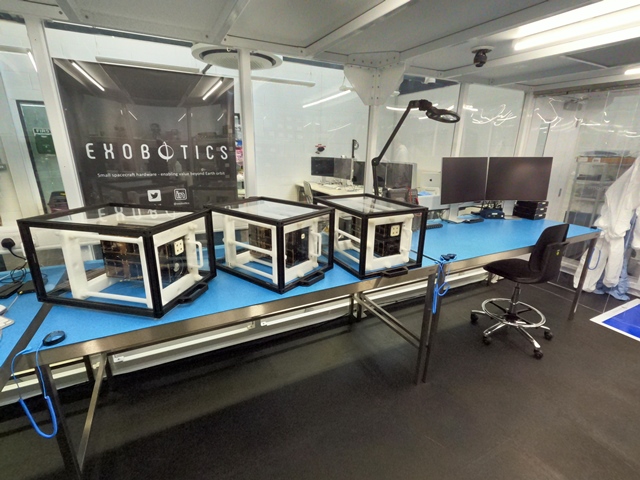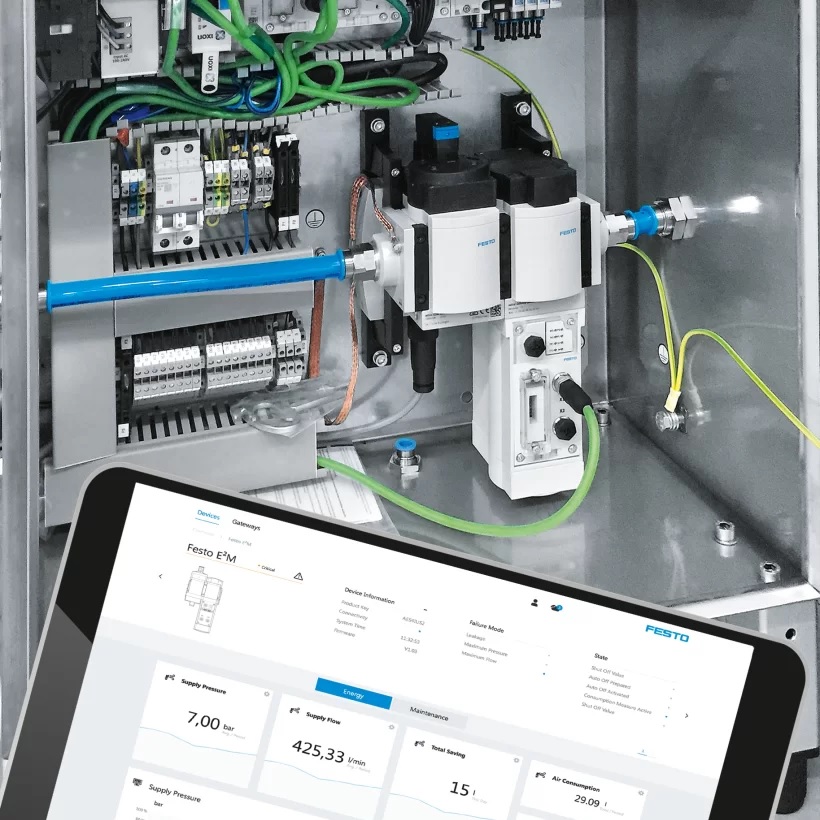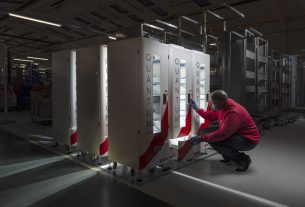Firstly, could you please tell us more about your company Exobotics?
Exobotics is a satellite development company offering nano-satellite testing and manufacturing, acting as an in-house satellite development team for customers both outside of the space industry in areas such as fintech, mining, agriculture, telecoms and beyond, and those within the industry who don’t have the skills, resources and experience to execute certain missions – making space accessible for all. The company has offices and labs based in London, Cambridge and Cornwall.
We oversee the end-to-end process of designing, manufacturing and testing nano-satellite systems in under 12 months through our fast-track programme, bringing to life a wide variety of briefs to life from bespoke payloads to satellite systems, from small CubeSats to 50kg microsatellites. Exobotics also offers satellite and testing products such as XO-BUS, payload agnostic nano-satellite platforms, and XO-VAC, a desktop thermal vacuum chamber.

What does the creation of the new Department of Science, Innovation and Technology mean for the industry?
The new Department represents an opportunity to streamline resources and initiatives from investment to education to shared technologies to better support industries such as space and manufacturing.
One of the key points in the Department’s formation is the creation of new high skilled jobs across the country, and with a prevalent technical skills gap, DSIT should play a role in developing digital and technical skills to both train new staff and upskill existing workers who can transition into careers in STEM. Sectors such as space are rapidly growing and will continue to require new waves of highly skilled staff.
Do you think that this will develop and encourage UK innovation?
The Department’s Secretary of State, Michelle Donelan, being given a Cabinet seat is an encouraging move, indicating that innovation will be central to nation economic and growth plans with the government already highlighting technologies such as semiconductors and telecoms as high potential. This should promote companies to invest, research and develop in these focus areas and drive innovations which can provide benefits across industries.
As DSIT begins pushing out new initiatives and programmes, the hope is that they will invest in and provide support for new start-ups and SMEs in the sector to help fuel their growth, which will ultimately drive the economy.
In your opinion, how will the space industry particularly benefit from this?
The space sector can benefit from the planned job creation brought about by DSIT to populate the exciting array of new start-ups and SMEs leading innovation. Areas such as Earth Observation and In-Orbit Services and Manufacturing will continue to evolve over the coming years and developments may well be led by new staff entering the industry. Space provides an opportunity for huge growth nationally and regionally so stands to benefit from any major initiatives introduced by DSIT.
What are you currently working on?
Exobotics is currently working on a number of contracts for space missions for clients with fintech, mining and agriculture applications. This involves designing, manufacturing and testing nano-satellite systems and payloads ahead of planned launches through our fast-track programme.
What are your plans for Exobotics for 2023?
Exobotics is planning to launch several satellites for our clients in 2023, bringing the benefits of space to those outside of the industry. We want to keep providing value for our customer’s customers, solving core needs using innovative space solutions that can be scaled.
Over the next 12 months, we plan to continue raising the awareness of the benefits that space can bring and continue delivering on missions for existing and new customers operating outside of the space industry.






